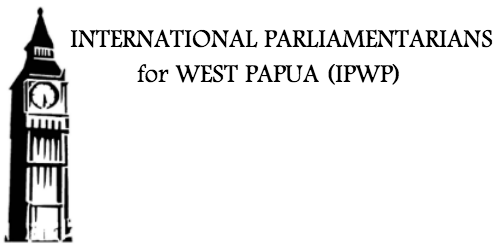A number of West Papuan religious figures have been killed or wounded in recent months, in what has been a marked escalation of Indonesian state violence against the West Papuan religious community.
Those murdered include Pastor Yeremia Zanambani, a respected member of the Protestant Evangelical Church, who was killed in the Intan Jaya regency on September 19. A report from the Indonesian National Commission on Human Rights (Komnas HAM) has ruled that Pastor Zanambani was tortured before being shot by the Indonesian Military (TNI).
Only a few days after Zanambani’s murder, pastor Albert Degei was found dead in mysterious circumstances in the Nabire regency. Though the local police chief declared that Degei died as a result of an epileptic fit, the official medical report was not shared with the victim’s family, and the presence of multiple head injuries raises serious questions about the official story.
This was followed on October 7 by a third incident involving a Catholic catechist named Agustinus Duwitau. Duwitau was shot – but not killed – after Indonesian soldiers allegedly mistook him for a member of the West Papua National Liberation Army.
Another Catechist, Rufinus Tigau, was then killed by TNI soldiers on October 26. Though Indonesia media reported that Tigau had fought back during a village raid, multiple eyewitnesses attested that he had done nothing more than answer routine security questions.
These incidents are part of a recent upsurge in human rights abuses committed in West Papua, the most heinous of which was the execution of three Papuan students by an Indonesian death squad on November 25.
It may also be that Indonesia is specifically targeting the West Papuan religious community, which in recent months has become increasingly vocal in its opposition to the Indonesian government’s colonial rule.
In August, 58 Papuan priests publicly rejected the extension of the Special Autonomy law, which was implemented in 2001 and is set to expire early next year. This was followed by an open letter published by the West Papuan Council of Churches demanding an end to Indonesian militarisation in West Papua, and calling on Indonesian President Joko Widodo to fulfill his commitment to meet with Papuan pro-referendum groups.
The increase in violence has sparked a wave of solidarity from regional religious groups. Citing the human rights abuses occurring in West Papua, the Pacific Conference of Churches (PCC) invited its member churches to observe ‘40 days of Hunger for Justice and Peace’ – a combination of prayer and fasting lasting until December 6.
Notably, representatives of the Catholic Church in Indonesia responded to the death of Rufinus Tigau by urging the Indonesia Government to bring an end to the violence. The bishops also called for the Indonesian military and police to show greater respect to the West Papuan people.
This is not the first time a religious body has drawn attention to the West Papuan struggle. Following a massive delegation visit to West Papua last year, the World Council of Churches expressed grave concern over the situation, highlighting Indonesian human rights abuses, as well as environmental degradation and abnegation of the universal right to self-determination.
This article was originally posted on the website of the United Liberation Movement for West Papua.
